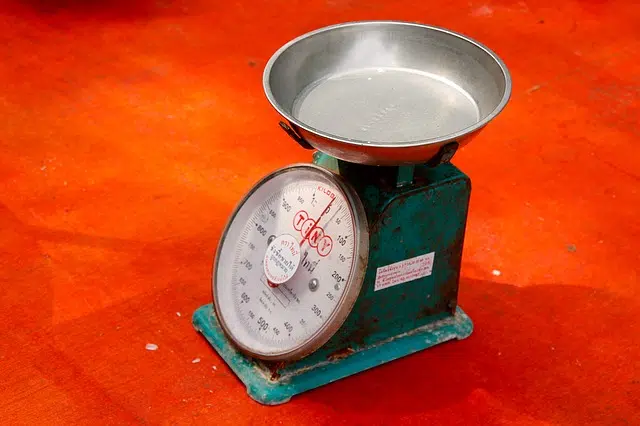
Specific gravity reveals the relationship between the weight and volume of a substance.
Weight is the force that the planet exerts to attract bodies. The magnitude of the force in question is also known as weight. Weight, on the other hand, is usually used as a synonym for mass , although this concept specifically names the level of matter in the body (beyond the gravitational force).
With this in mind, we can define the notion of specific gravity , which is the link between the weight of a certain substance and the corresponding volume . It can be expressed in newtons per cubic meter (in the International System ) or in kiloponds per cubic meter (in the Technical System ).
Specific weight and density
It is important to note that the kilopond (also known as kilogram-force ) is the force exerted by the gravity of planet Earth on a mass of one kilogram. This means that the value of the specific weight expressed in kiloponds per cubic meter is equivalent to the value of the density (which is expressed in kilograms per cubic meter).
The specific gravity, therefore, is the weight of a substance per unit of volume. Density , on the other hand, refers to the mass of a substance per unit volume and is obtained by dividing a known mass of the material in question by its volume.
Although density and specific gravity are different concepts, they are closely related to each other. For example, if we take the formula for the weight of a body ( P = m . g , mass times acceleration of gravity) and use it to substitute the variable p in the formula for specific gravity ( Pe = p / V , weight over volume ), we obtain the following: Pe = mg / V. This can also be expressed as Pe = m/V. g and, since density is mass over volume, it can be concluded that specific weight is equal to density multiplied by the acceleration of gravity: Pe = d. g .
If we take the case of frozen water , for example, we will notice that its specific weight is 9170 newtons per cubic meter , while its density is 0.917 kilograms per cubic meter.

Frozen water has a specific gravity of 9170 newtons per cubic meter.
Utility of the concept
Knowing the specific weight of a body can be very important at an industrial level to determine the best conditions for its processing, to mention one possibility. Everything will depend on the characteristics of the product that is planned to be obtained.
Thanks to the determination of the specific weight, and also in some cases the density, the best physical and physiological quality can be obtained from certain products, such as rice, wine (through the analysis of the must, since the higher the weight specific, higher sugar content), gems and cement.
What is relative specific gravity
The relative specific weight of a given substance is its unit weight divided by the unit weight of water when distilled at a temperature of 4 °C. This value is used for predicting the unit weight of a soil, for performing hydrometer analysis, and for calculating the void ratio of a soil. For grains it is the value considered average and generally serves to carry out the classification of their minerals. It is worth mentioning that this concept is also called specific gravity .
When it is desired to determine the relative specific weight of a soil, two procedures are established: one for those that consist of particles smaller than 5 millimeters; another for the rest. Using a number 4 sieve it is possible to carry out said classification, to apply the method that corresponds to each sample, after which the weighted average of both must be obtained.
